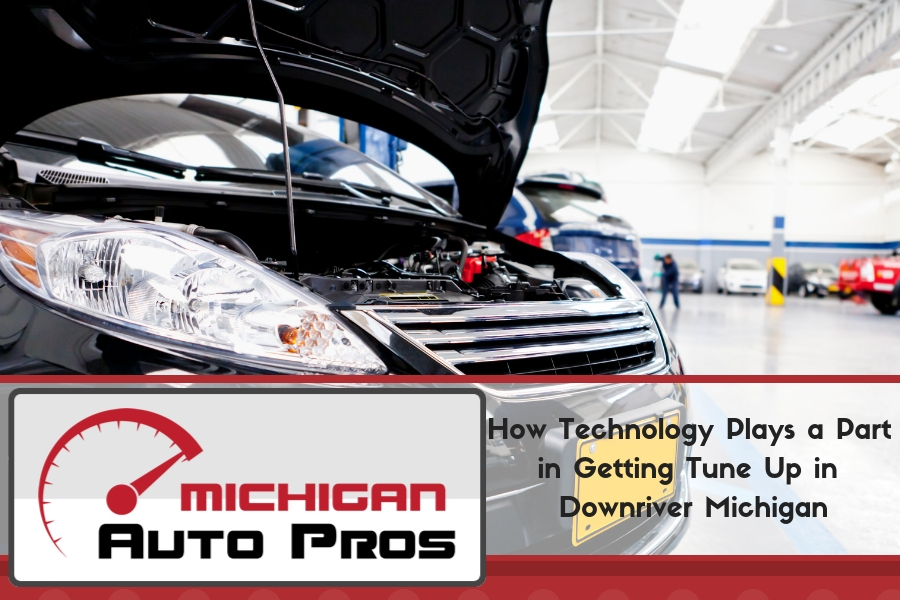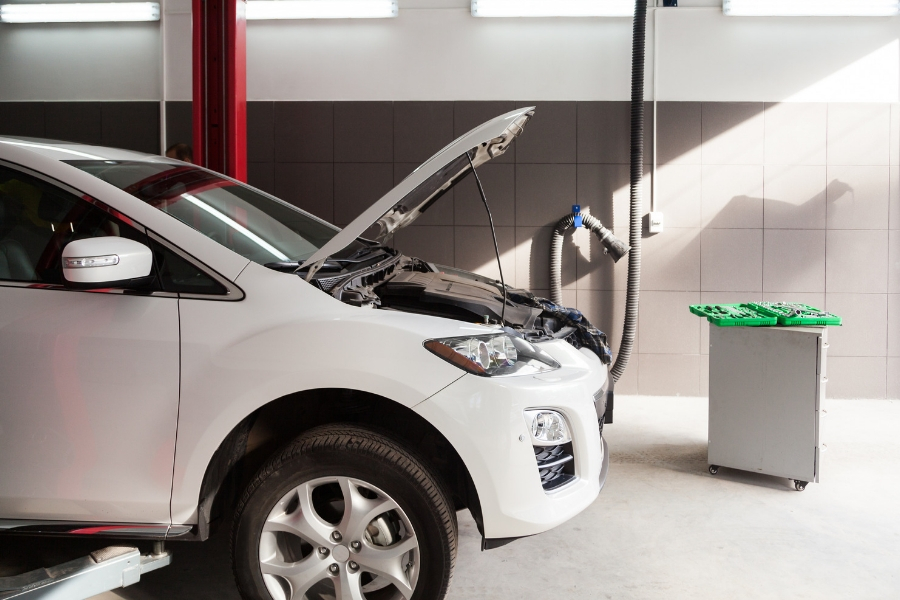Nearly everyone’s heard of a tune-up, but fewer understand what it means and why they’re done. In today’s world, the ever-important tune-up has become a catch-all phrase for staying up to date on basic maintenance. Some might even argue that a tune-up isn’t necessary. If you’ve ever wondered where your money is going when you ask for a tune-up, read on to better understand the meaning of today’s tune-ups.
How Technology Plays a Part in Getting Tune Up in Downriver Michigan
Getting a tune-up in Downriver Michigan is essentially shorthand for preventative maintenance. What is preventative maintenance you ask? Preventative maintenance differs from a repair by virtue of the fact it is being performed to keep a car in good running order. A tune-up is done to prevent the need for repairs. Of course, there are still costs associated with a tune-up, but they’re far less than repairing a damaged car. A car being taken in for a tune-up generally has nothing wrong with it, and the driver wants to keep it that way.

Areas of Focus
When a car goes in for a tune-up, the technician typically focuses on a few key areas.
- Battery – A healthy battery will keep you off the side of the road. Your technician will ensure the battery is properly charged and look for signs of corrosion. A battery that isn’t holding a charge could be a sighn of other faulty components, such as the alternator.
- Belts – Your serpentine belt and timing belt are critical. A broken timing belt may lead to catastrophic engine damage that can easily total a vehicle. The serpentine belt powers essential systems such as your power steering, water pump, and alternator. A technician will examine the belts for signs of wear such as dry rot, fraying, or too much slack and advise if or when they should be replaced.
- Filters – Namely your air and cabin filters. Some tune-ups may inspect the fuel filter as well, although this is generally maintenance-free. Your air filter is cheap and easy to replace, but if neglected, fine debris will enter the engine and erode delicate components. The cabin filter, although not necessary to a car’s function, prevents dirty air from entering the passenger compartment. A technician can easily tell when it’s time to replace a filter.
- Tires – Your technician will measure tread depth, ensure proper inflation, and inspect for damage or leaks. A tire rotation is also common, and necessary to ensure uniform wear of all four tires. You will also be provided with an estimate of tire life, as well as the cost of replacement.
- Pugs and Wires – Todays shops are equipped with special tools that can establish properly functioning plugs and wires. Your technician will also give a visual inspection. If plugs appear sooty or have too much gap (the distance between electrodes which the spark must jump), you may be advised to replace them.
- Emissions – Your car’s emission system plays a big role in its ability to pass an inspection. Many times, states will require that a vehicle be hooked up to an exhaust gas analyzer which measures pollutants exiting the tailpipe. Your technician can inspect your catalytic converter, which is responsible for reducing emissions and establish any costs should a repair be necessary. Additionally, the PCV valve – a small valve which helps re-route gases back into the engine, can become clogged. A faulty PCV valve can cause oil leaks, and a buildup of sludge. It is inexpensive, and easily replaced.
Someone told me tune-ups are a waste of money.
There will always be naysayers. But those who believe tune-ups to be a waste of money are probably not familiar with what is (and isn’t) being done. Modern cars often have scheduled maintenance intervals prescribed by their manufacturers. The maintenance conducted at these intervals, like with a tune-up, is largely preventative. The belief that a tune-up is no longer a cost-effective way of maintaining a vehicle likely stems from the notion that labor performed is happening more frequently or sooner than suggested by the manufacturer. This kind of redundancy will do no harm but may indeed be costlier than necessary.
In short, if you’ve been adhering to the manufacturer’s scheduled maintenance, brining it in for additional preventative maintenance may indeed be unnecessary. However, if you drive a new-to-you car or have simply lost track or neglected scheduled preventative maintenance, taking your car in for a tune-up that addresses all of important areas is an excellent way to ensure many trouble-free miles, and it should not be seen as wasteful.
Benefits of A Tune-Up
It may be obvious, but a properly maintained car will run longer, and more reliably. Spending a little extra to ensure your car is in good working order – and stays that way – simply makes sense, as most do not have the funds to buy a new car every year or so. Also consider gas mileage. As parts wear, the engine must put forth more effort to achieve the same results, which becomes costlier at the pump. If you have plans for a new car, you can also expect a higher resale value with a car accompanied by an up-to-date maintenance schedule. A properly tuned car will also be safer, and more enjoyable to drive.
If you’re considering a tune-up, the ASE-certified technicians at Good Care Auto are standing by to assist you. We offer clean, state-of-the-art service bays, and a courteous, knowledgeable staff. No job is too small. Give Good Care Auto a shout at (734) 285-1188 and schedule your tune-up today!
